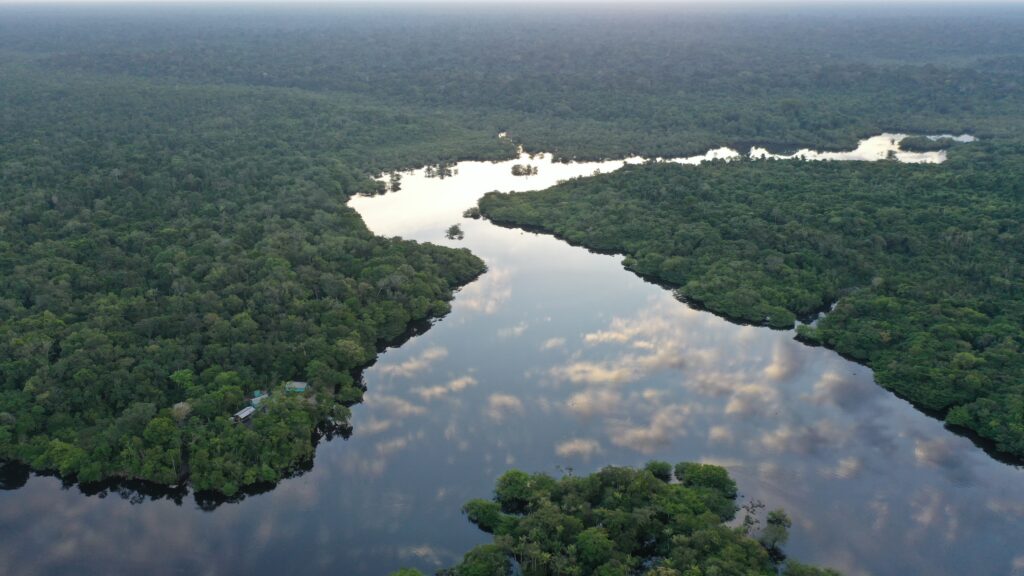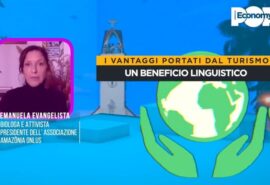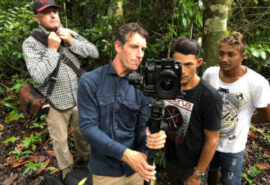The role of banks and civil society in turning Earth into a sustainable, inclusive planet

Banks detain great responsibilities towards the climate change mitigation and environmental protection. In fact, as financial intermediaries, they may affect the environment and the community well- being through asset managing and insurance activities. For instance, many banks often decide to use depositors’ money to invest in the biggest oil and carbon multinationals, slowing down the process of energy transition.
According to a report published last August by Sand.Earth and Amazon Watch, 19 European banks have been financing the destruction and degradation of the Ecuadorian Amazon rainforest through their trading, contributing to threaten the biodiversity, livelihoods and cultures of Indigenous people.
Banktrack, the International Organization that monitors the social and environmental impacts of the banks’ actions, explains that “Banks, like all companies, produce greenhouse gases (GHG) directly through their activities. However, their most important contribution to GHG emissions is indirect, through the financing of clients and projects that generate GHG emissions. Banks also continue to play a key role as major financiers of the coal, oil and gas industry, effectively delaying the much-needed transition from a fossil fuel-based to a renewable energy-based economy. In fact, each new bank-financed oil well, coal mine, coal power plant or gas terminal is intrinsically incompatible with achieving the Paris Agreement goals. In order to mitigate climate change and stop the dependence on fossil fuels, banks must stop financing them. (2020).
As a matter of fact, many civil society organizations and public opinion movements have started to rebel out against this trend.
The US campaign “Stop the money Pipeline” – led by Jane Fonda – is awakening the American investors on the fact that stopping the flow of money means stopping the flow of oil. This group specifically demands that banks, asset managers, insurance companies and institutional investors stop funding, insuring, and investing in climate destruction (2020).
Besides, the Fridays for Future movement has always remarked the significant role that banks can play if they decide to deal with environmentally and socially sustainable projects (Press Dinamo, 2019).
Thanks to these bottom-up movements, many banks have started using some ‘green’ financial products, even though without giving up products that invest in polluting activities. That brings us to the concept of shared responsibilities among governments, businesses but also civil society.
The importance of involving citizens into the decision-making arena is underlined by the fact that all the economic activities related to deforestation activities – as agriculture, livestock, precious wood production – depend entirely on the consumers’ market and interests. Therefore, consumers can use their purchasing power to dictate the market demand and eventually to decrease the consumption of goods that induce deforestation.
At the same time, citizens need clear information in order to undertake conscious actions. Thus, Amazônia Onlus believes that the accessibility to transparent information to the citizen/consumer is a fundamental requisite for the success of a bottom-up governance and to be a conscious player in society, when deciding to enjoy a good or a service. Similar symmetric information is urgent and necessary to the citizen/investor and to its accountability, as all the activities depend on the accumulation of capital deriving from financial assets – namely stocks and bonds.
The European Union is currently working to develop more transparent standards for financial institutions that will allow investors to have a clear knowledge of the sustainability of their investments. In this regard, the Vice-President of the EU Commission and responsible for the economy – Dombrovskis – explained that “at the moment there is a gap on the sustainability reporting, which is an obstacle for the realization of a sustainable financial system. The latter is urgent as the investors’ necessity to have detailed information regarding the impacts of the company’s activities is rapidly growing” (Focus Energia, 2020).
The old business model based on profits and returns is without any doubt negatively affecting our planet and our well-being (Banca Etica, 2020). Perhaps all bank investments should be based on indicators inspired by the Agenda 2030 Sustainable Development Goals, as the ethical banks are doing? Certainly, a sustainable and inclusive economy based on the bottom-up approach must be part of the equation for the survival of Mother Earth.
Text by Alice Martiny
Photo: Fabio Liggeri
REFERENCES
Banca Etica Report. https://bancaetica.it/report-impatto-2019/.
Banktrack. “Banks, climate and energy”. https://www.banktrack.org/campaign/banks_climate_and_energy.
Etica SGR. https://www.eticasgr.com/investimento-responsabile/il-nostro-impatto/report-di-impatto.
Focus Energia. 2020. https://www.ansa.it/canale_ambiente/notizie/focus_energia/2020/02/21/finanza-sostenibile-ue-via-alla-revisione-della-direttiva-nfrd_12c8bbc1-082a-4877-bcd2-ac4c006e0c08.html.
Fridays for Future activist. “La casa è in fiamme: azioni di Fridays for Future in tutta Italia”. Press Dinamo. July 2019. https://www.dinamopress.it/news/la-casa-fiamme-azioni-fridays-for-future-tutta-italia/.
Hirschmann, Susanne. “The Role of Citizens in Producing and Consuming their Own Renewable Energy”. Quaderns dela Mediterrània. 2017. https://www.iemed.org/observatori/arees-danalisi/arxius-adjunts/quaderns-de-la-mediterrania/qm25/citizens_renewable_energy_Susanne_Hirschmann_QM25_en.pdf.
Robertson, Angeline. “European Banks financing trade of controversial Amazon oil to the US”. Report by Amazon Watch and Stand.earth. 2020. https://www.stand.earth/sites/stand/files/eu-banks-financing-amazon-oil-standearth-amazonwatch.pdf.
Stop the Money Pipeline Website. 2020. https://stopthemoneypipeline.com/about-2/
Related Posts
-
Emanuela Evangelista speaking of her commitment to environme...Mar 09, 2020 / 0 comments
-
Do Amazonian houses have electricity? What about running wat...Jul 29, 2021 / 0 comments
-
In the Amazon, biodiversity is high and the natives have ...Jan 19, 2022 / 0 comments
-
This month at Xixuaú we hosted a film production troupe fro...Jun 12, 2019 / 0 comments
Contact us
Xixuaú Amazon Ecolodge
69373-000 – RR, Brasil






Sorry, the comment form is closed at this time.